KUALA LUMPUR, May 6 — Taman Desa today is a foodie’s paradise — a plethora of cafés and restaurants offering artisanal coffee, French pastries, organic and vegan food, and cuisines from around the world. There weren’t quite as many options nearly a decade ago, however, until a small udon shop appeared.
That shop was Sanuki Udon, opened in 2009 by 48-year-old Japanese expatriate Seiji Fujimoto. Its popularity shows no signs of abating; Fujimoto’s four other shops — offering everything from open-air Japanese BBQ (yakiniku) to sushi-and-sake pairings — are equally successful.
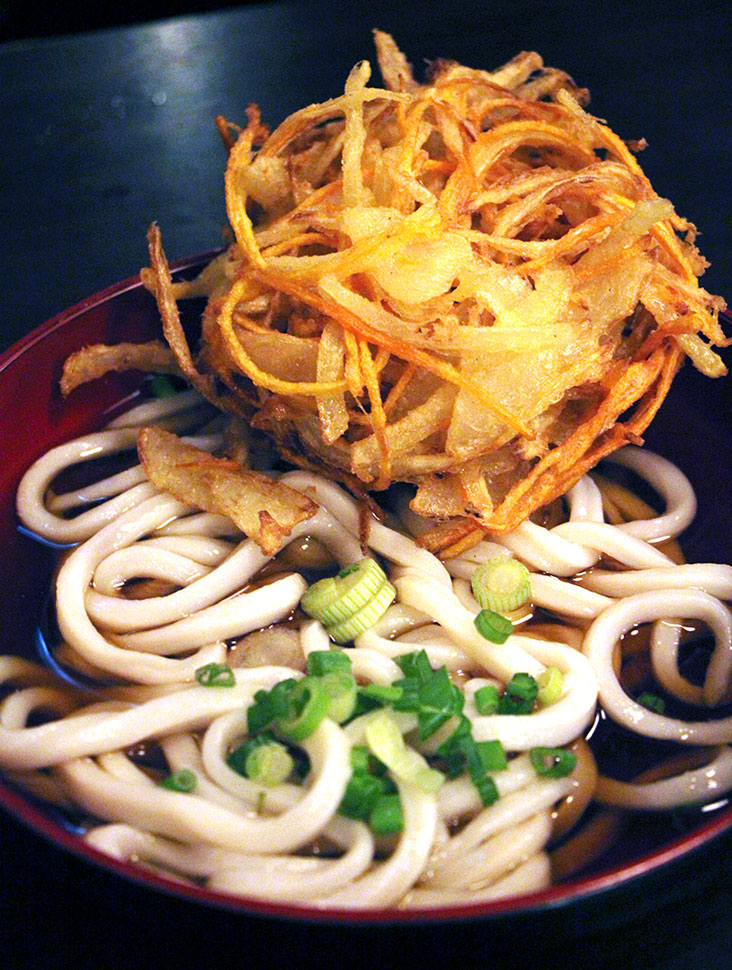
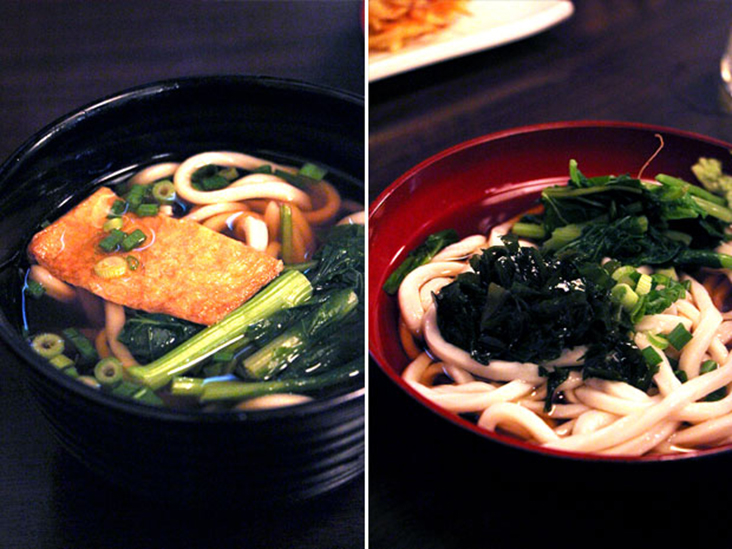
How did one man, almost single-handedly, kickstart an F&B (food-and-beverage) revival in a quiet KL neighbourhood?
It all started in 2002, when the Yokohama native first came to Malaysia as the general manager of Isetan. Five years later, he returned to Japan looking to start his own business in Tokyo but found conditions there challenging. That’s when he made the fateful decision to try his luck back in KL instead.
Fujimoto explains, “I liked the food in Malaysia and the lifestyle here. I observed that there were many conventional Japanese restaurants but very few of the casual eateries that most Japanese would frequent after work or after school. Something more affordable and relaxed.”
Even then he began small, with a mid-row shophouse in Taman Bukit Desa, then relatively neglected food-wise. Sanuki-style udon was chosen due to its similar texture to pan mee, to ensure locals would take to it easily.
Fujimoto’s management approach was to keep things simple. His staff — mainly Myanmarese — had to master a few basics: greeting customers as they arrived and departed with a resounding “Welcome!” and “Thank you very much!”; using English rather than Japanese so his workers don’t need to be overly proficient, language-wise; and utilising order forms for customers to improve efficiency.
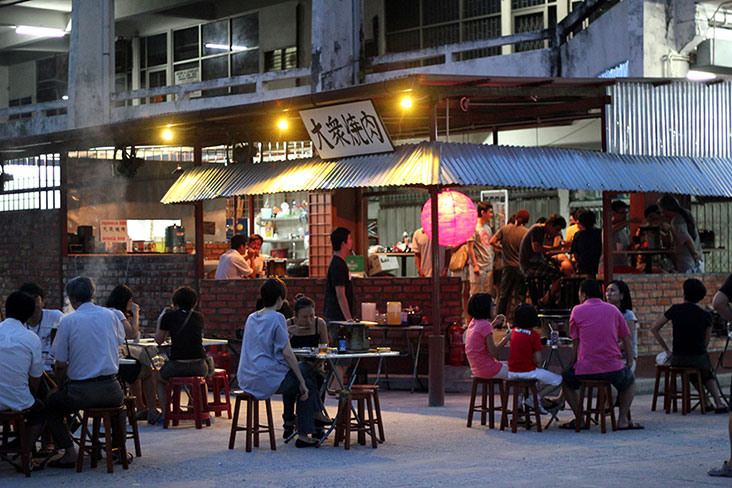
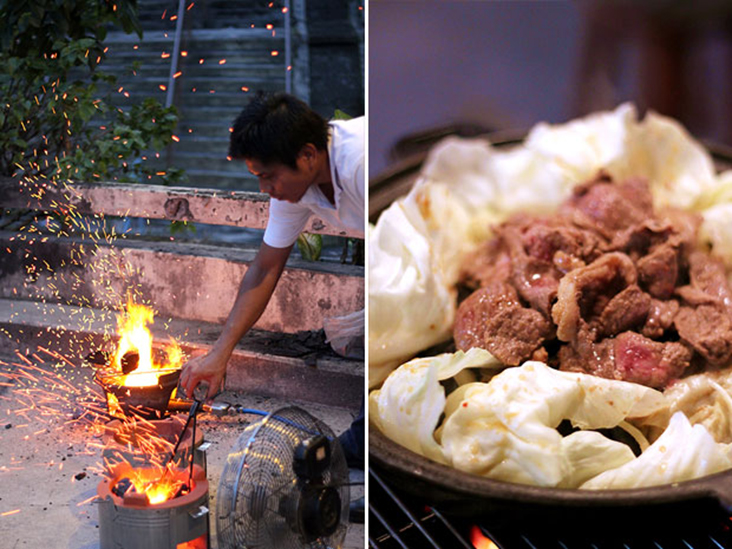
It’s no surprise that Fujimoto, being well-versed in Japanese business lore, based his market strategy on the brand Muji. He shares, “The Muji philosophy comes from its name: Mujirushi Ryohin which means ‘No brand, quality products.’
“That’s why Sanuki Udon is simply named after the main product; it’s like calling a pan mee shop Pan Mee! Better to be straightforward; simplicity makes it easier for customers to remember a brand and associate it with the product I’m offering.”
Another pillar concept of Muji is to prosper with local communities. Fujimoto achieves this by locating all his shops in one central location (Taman Desa) and nurturing his customer base slowly over time.
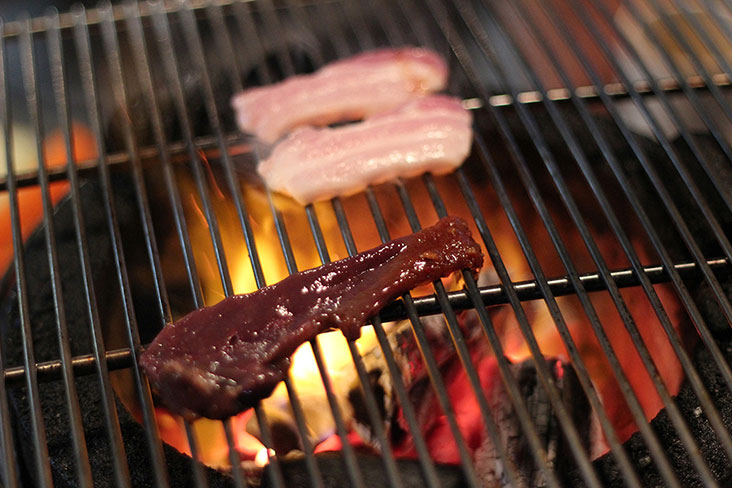
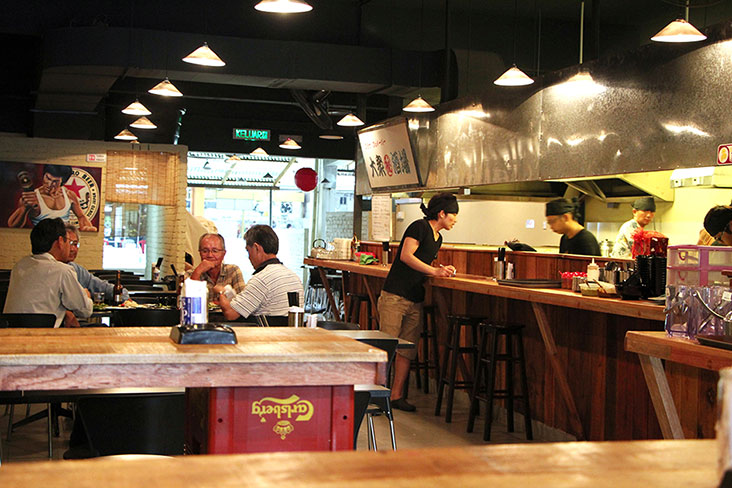
By hooking his regulars early while they are young, he ensures their loyalty to his future endeavours as they progress from college-age students to working adults with more disposable income.
In 2012, Fujimoto opened his second shop, Taishu Yakiniku Japanese BBQ. Japanese businessmen and high school kids alike grill meat over hot charcoals under the evening stars. The scene harkens to Shimbashi, where hungry diners swarm the rows of tightly-packed yakiniku stands beneath Tokyo’s famous Yamanote line.
A year later, Fujimoto’s third Taman Desa eatery, Maruhi Sakaba presented residents who weren’t into do-it-yourself (DIY) grilling with yakitori. Nearly every part of the chicken such as the wing, thigh meat, bishop’s nose and offal are grilled to perfection by trained masters.
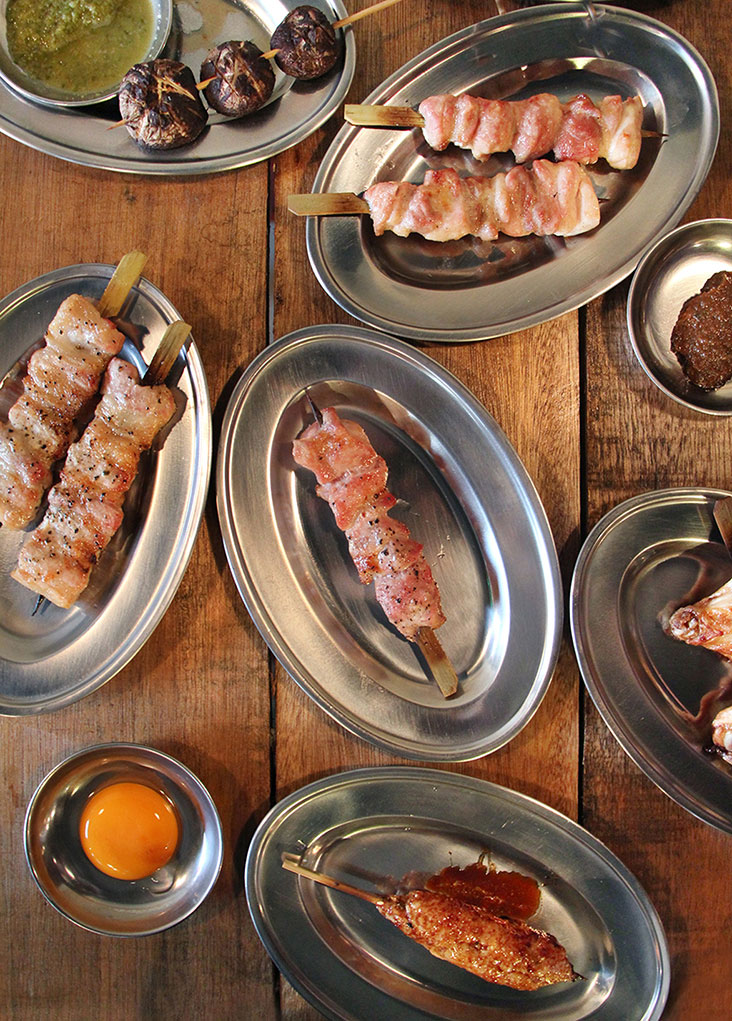
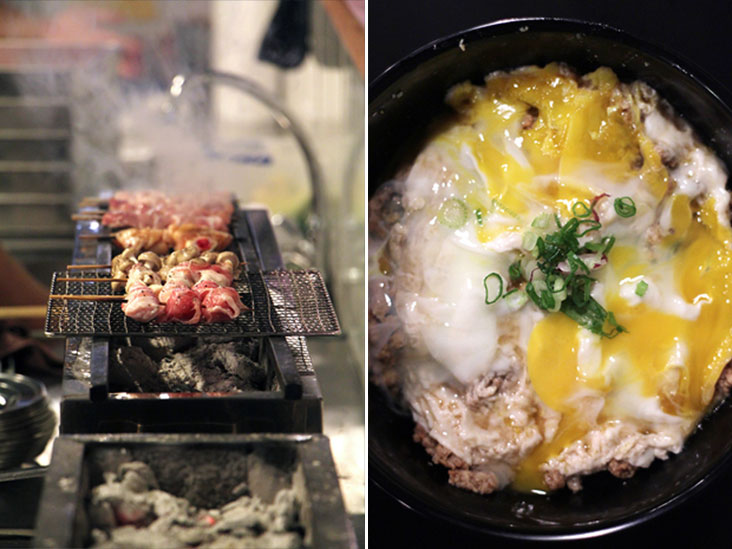
The humble restaurateur reveals that he was born into a family of food lovers: “My mother taught cooking classes to adult students while my grandfather ran a chain of hotels and restaurants in Fukuoka where my family is from.
“My father was a pilot and used to bring me different foods from wherever he flew, which helped me to develop adventurous taste buds.”
Therefore it was only a matter of time before Fujimoto turned to his childhood upbringing in Yokohama, home to the largest Chinatown in Japan, for inspiration. His fourth shop, Lao Jiu Lou, opened in 2014, offering comfort food dishes that were a mix of both Japanese and Chinese cultures in his hometown such as spicy-nutty tantanmen and pork gyoza.
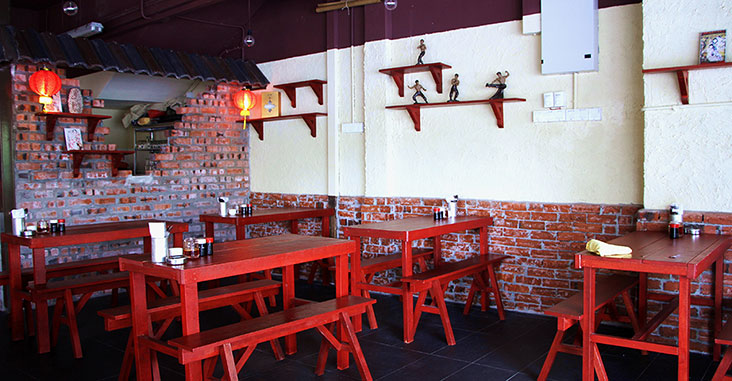
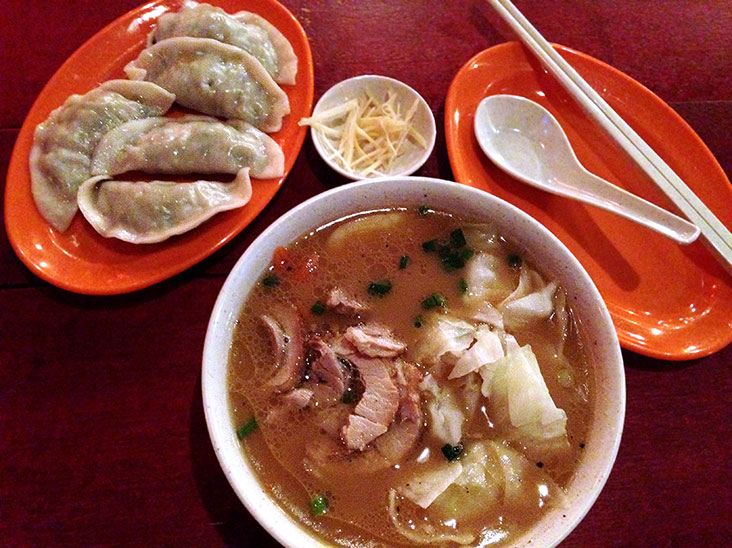
Over time, Fujimoto has transformed the shop into more of a tachinomi (Japanese standing bar that serves food), bringing Lao Jiu Lou closer to the regular haunts of his youth.
He says, “Once diners are used to your initial offering, something accessible, then it’s easier to recommend new dishes. New concepts, too. I wouldn’t have started my first shop in Taman Desa as a Japanese bar, for example.”
Opening the sushi and sake bar Nikai, his fifth shop, in late 2016 was the culmination of a lifelong dream for Fujimoto. He has always enjoyed the casual camaraderie from drinking at Japanese bars with others. As an entrepreneur, he has found this was also an opportunity to forge new friendships.
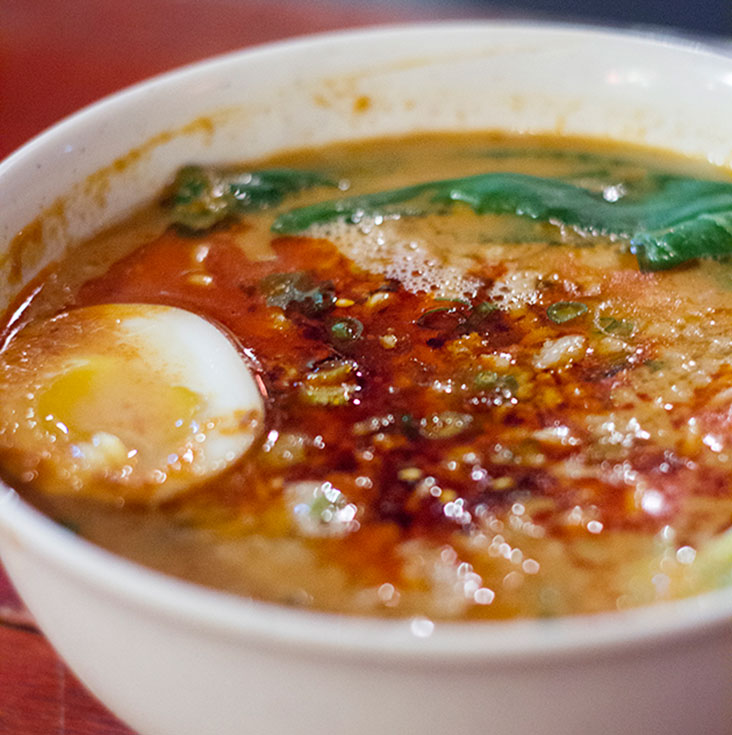
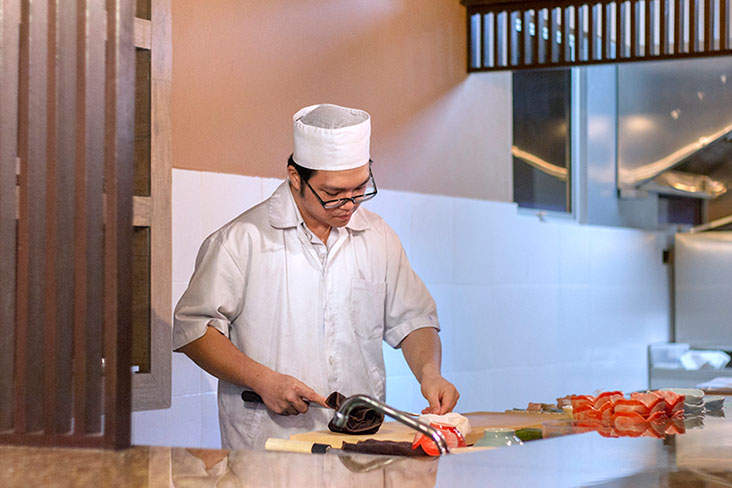
He explains, “People are more relaxed when they’re sharing drinks together. It has been really helpful for me because I started out as an outsider here. Malaysians, I find, are always willing to share their thoughts. Some have introduced me to their suppliers. In Japan, on the other hand, everything is more closely guarded.”
Therefore to be able to open a bar where others can relax – and hopefully make those precious connections too – is Fujimoto’s way of giving back to the community. He says, “Taman Desa has been wonderful to me and my shops. This is, hopefully, my way of contributing something.”
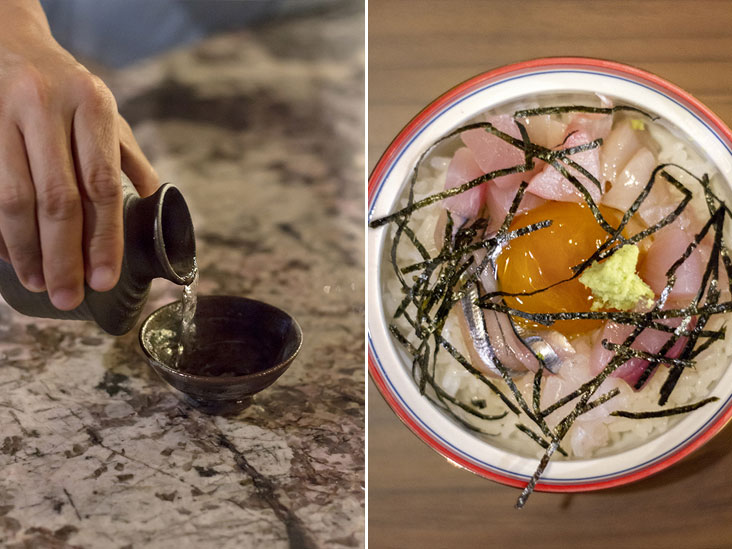
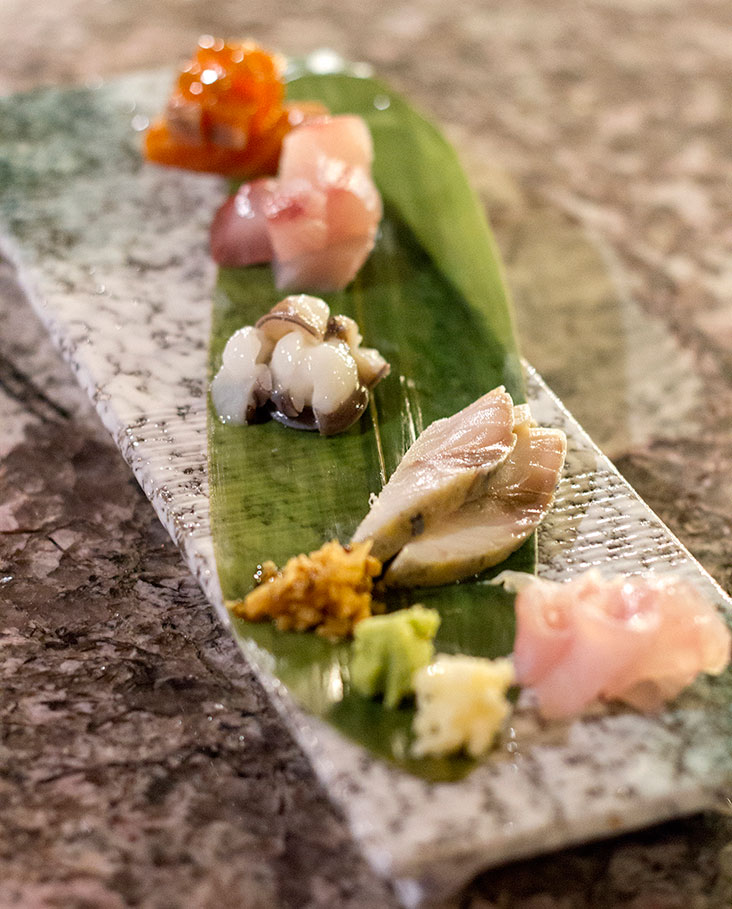
That something may well be a legacy of entrepreneurship, a slow and steady style of building a small F&B empire, and making Taman Desa the heart of no-nonsense Japanese eats in KL along the way.
#1: Sanuki Udon
No. 9, Jalan Bukit Desa 5, Taman Bukit Desa, Kuala Lumpur
Open Tue-Sun 12pm-3pm and 6pm-9:30pm; Mon closed
#2: Taishu Yakiniku Japanese BBQ
Center Court, Plaza Faber, Jalan Desa Jaya, Taman Desa, Kuala Lumpur
Open Tue-Sun 6pm till late; Mon closed
#3: Maruhi Sakaba Yakitori
No. 6A, Plaza Faber, Jalan Desa Jaya, Taman Desa, Kuala Lumpur
Open Tue-Sun 6pm till late; Mon closed
#4: Lao Jiu Lou
Ground floor, No. 25, Jalan Bukit Desa 5, Taman Bukit Desa, KL
Open Tue-Sun 11:30am-9:30pm; Mon closed
#5: Nikai
First floor, No. 25, Jalan Bukit Desa 5, Taman Bukit Desa, Kuala Lumpur
Open Tue-Sun 7pm till late, last orders 11pm; Mon closed






















